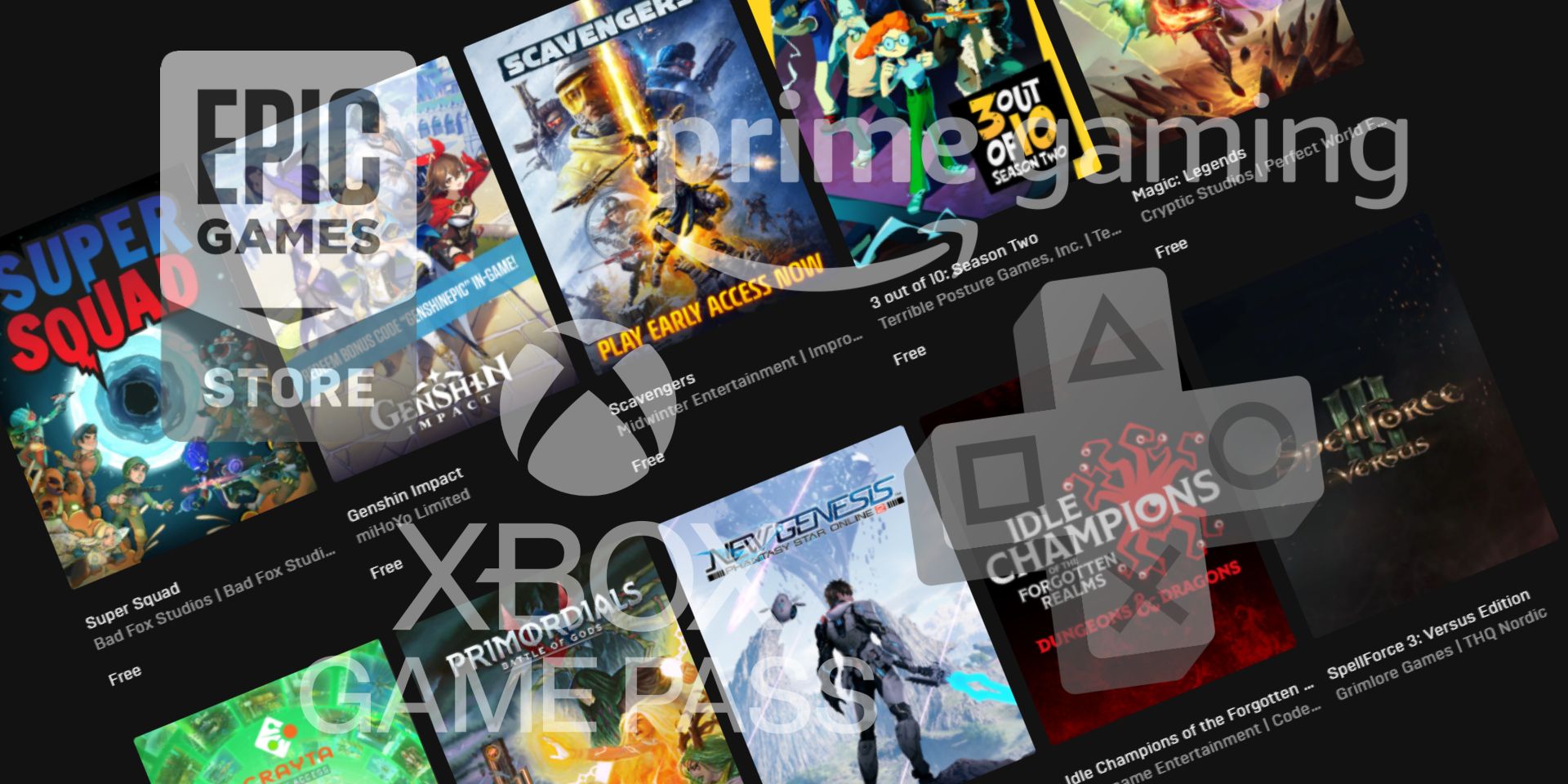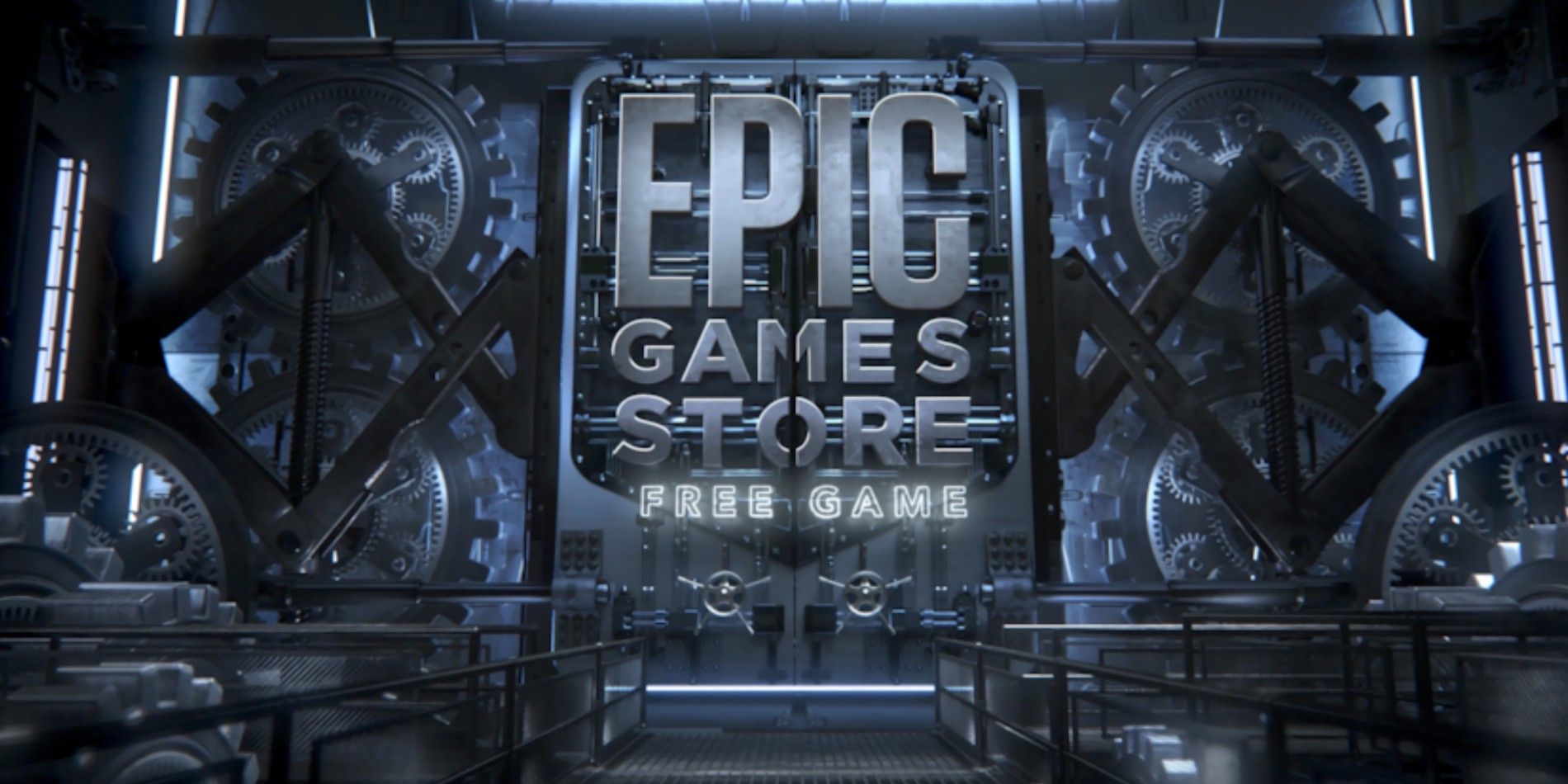
Gaming is more accessible than ever in 2021, with free and free-with-subscription games available across every platform. Regardless of budget, there's always something to play, which is an undeniable boon for consumers and the growth of the hobby at large. But collecting the many, many free games available can become a chore, and it ultimately lessens the emotional value of game ownership.
Due to the number of games being offered free through promotional deals or as part of subscription plans, many gamers routinely check a variety of digital storefronts to ensure they don't miss out on any quality freebies. The Epic Games store offers free games each week; Amazon Prime members receive several free PC games each month; PlayStation Plus and Xbox Games with Gold subscribers have freely accessible titles rotated every month; and other free games are often made available on storefronts like GOG and Steam. Games have been offered for free through limited-time promotions like PlayStation's pandemic-related Play At Home event, and Too Human is even free as a result of a series of complex legal disputes.
This is entirely good for the consumer. Gamers with the right hardware, an internet connection, and possibly a subscription or two have access to a large number of free games without resorting to piracy. These are in addition to the Netflix-style game subscription plans like Xbox Game Pass, PlayStation Now, and Amazon Luna. Without purchasing a single title, users who diligently collect the games these storefronts make available can amass a considerable library. The upsides of making games accessible and cost effective are clear, but there are drawbacks, even if they're almost entirely psychological.
An excess of claimed free games every month can lead to decision paralysis. For busy, working adults, time can often be more valuable than the cost of buying a game, and deciding which, if any, of those are worth diving into can seem daunting. Netflix evidently identified this as a problem for its own users, as it's tested buttons to randomly select an episode of Netflix programming and to shuffle the episodes of a show for random viewing. Xbox Game Pass also has a similar random game selection option. It may also lead to players not giving games an adequate opportunity to win them over; some games are a slow burn and may require a bit of patience before the story hits its stride or the player is comfortable with the gameplay. A large variety of free games competing for players' attention might cause them to quickly dismiss a title they might enjoy, if given more time and focus.

The perceived value of video games also changes due to the regular availability of free titles. Most gamers are aware that, when games are first released, they are at their most expensive and, often, in their worst state of stability (as launch glitches in games like Cyberpunk 2077 have shown). Waiting, therefore, means paying less and receiving a better, patched version of a game, in some cases also including DLC and other add-ons without paying extra. For those who habitually wait until games have been patched and discounted, even significant seasonal sale prices may now seem questionable, as they can't be sure whether the game might later appear for free.
Multiple storefronts offering free games can also cause users to lose track of their own libraries. With games spread across PC storefronts like Steam, GOG, and Epic, in addition to console libraries on Xbox, PlayStation, and Switch, gamers may see a game on sale in one storefront and not realize it was one they already claimed for free on another. The useful GOG Galaxy app does alleviate this to some degree, as users can allow it to collect data on a their collective libraries across multiple digital storefronts, including consoles. But it is not a foolproof solution. GOG Galaxy currently does not distinguish games that are owned indefinitely from games played through subscription plans like Xbox Game Pass. While still helpful for letting users know which titles they have access to at any given time, it also doesn't address games users purchased as physical discs, adding to the confusion.
A free game remains a good thing for consumers, as the tangible, economic benefits outweigh the psychological drawbacks for most people. It does require a bit of adaptation: The current digital gaming marketplace, with its multiple rival storefronts, creates an environment of competition that provides great benefit for consumers but also more bookkeeping and busywork. Just as a user might feel regret if they neglected to claim a quality free game on the Epic Games Store, they might feel the same regret buying a game, even at a sale price, that shows up for free the next week. The struggle of "too many free games," however minor, is one that requires consumers adjust both their shopping routines and their value paradigms with any game purchase.
https://ift.tt/3jWN7Y7
July 07, 2021 at 11:12PM





